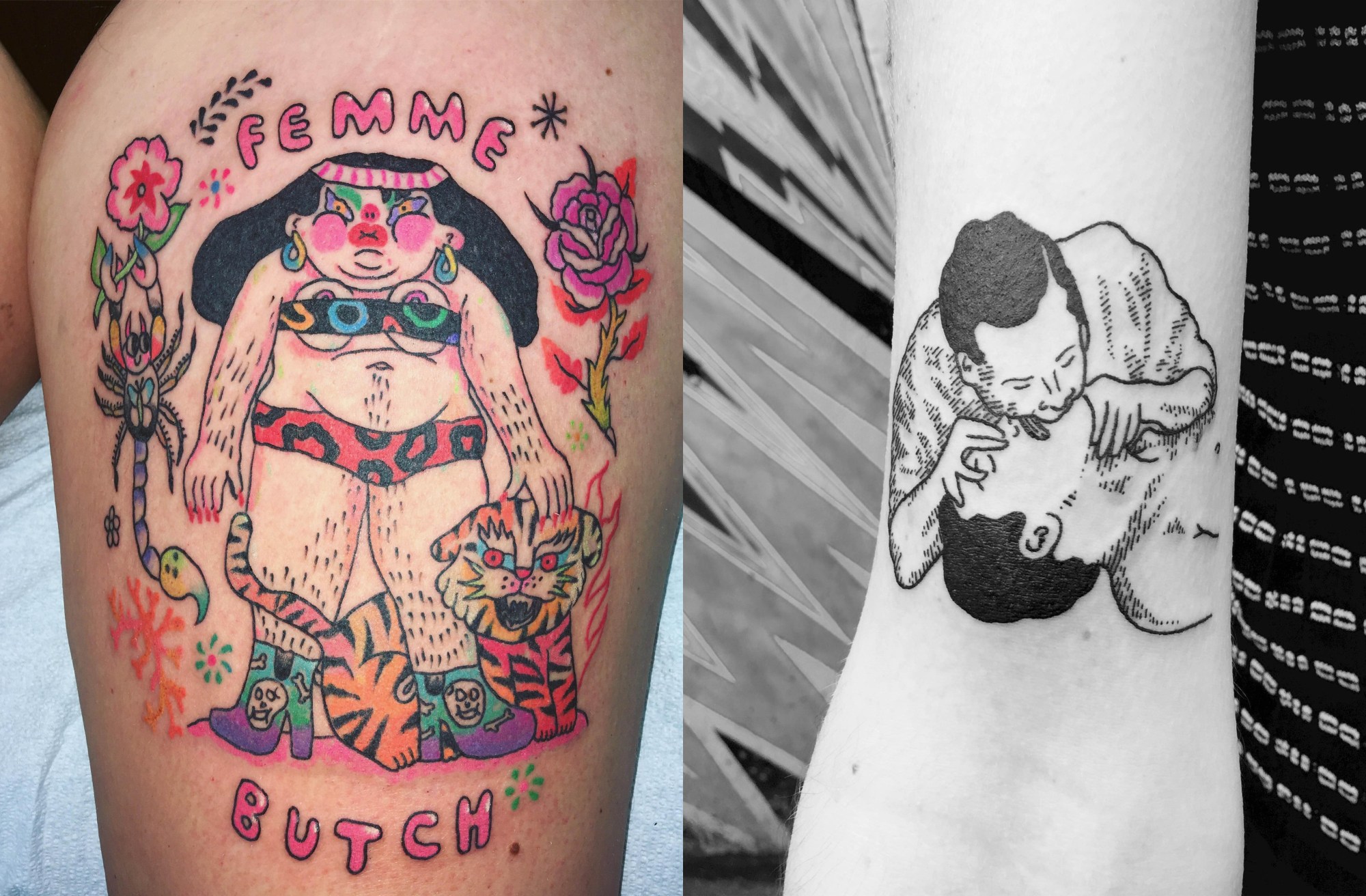Something queer is happening in the tattoo world: there are more out-and-proud tattooers than ever before. There are dedicated social media spaces (such @queer_tattooers and the new @qpoc.ttt), and offline sanctuaries such as Minuit Dix in Montreal and Lupinewood in Massachusetts. Is it a movement? “I feel a movement would have clearer edges and a more opaque form,” artist Nomi Chi answers. “Whereas the queer tattoo phenomenon we are discussing here is nebulous, amorphous.” But that shapelessness might be part of the point —there are no categories in the queer tattoo community. Rather, it is more of an expanding nebula, an open-armed place for anyone who identifies as LGBTQI+, and for all kinds of art. “That there is no unified queer aesthetic in tattooing is comforting to me,” Noel’le Longhaul explains. “That there are as many possibilities of what tattooing can look like or mean as there are queer experiences one can have, or be, or provide, is a beautiful thing.” Here, we highlight the work of nine exceptional artists, and ask each of them to briefly share their experience as a #QTTR.
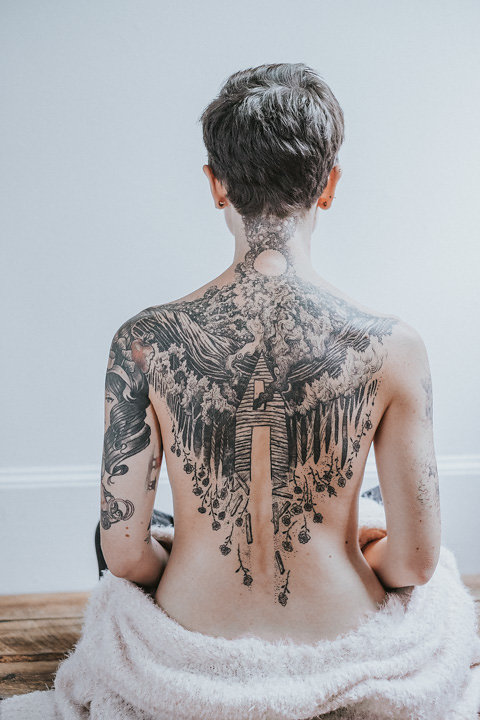
Noel’le Longhaul
“As a self-taught tattoo artist who is also a trans woman, I came into this craft largely unaided by the conservative, segregated, and patriarchal establishment that is Western electric tattooing. My tattoo practice was born from the type of harsh solitude that often goes along with being trans. While being without peers or mentors for many years was a painful and frustrating position to be in, it also meant I was able to pursue a more politically and spiritually accountable tattooing that prioritized generating a mutually vulnerable, honest, and consensual environment for what is an inherently potent ritual of exchange.
“In the last couple years, seeing more and more queer tattooers coming into their practices, I have come to feel a part of something larger than my own isolated practice. I feel deeply connected to the queer tattoo artists who are ignoring both the aesthetic and cultural legislation that tattoo artists are expected to adhere to… That there is a shared politics to queer tattooing is relieving. Largely, I have found that queer tattooers acknowledge their craft was born out of indigenous, black, and brown societies and now is an industry almost defined by racism, fat-phobia, homophobia, and sexism, whereas the majority of straight white tattoo artists do not.
“As queer and trans tattoo artists, we understand embodied trauma. We have experienced it. It defines vast parts of us. Tattooing is a controlled traumatic experience, which, in conventional conservative tattoo culture, is downplayed, laughed at, and ignored. Queer tattoo artists acknowledge that, and we use that as a part of the medium itself.”
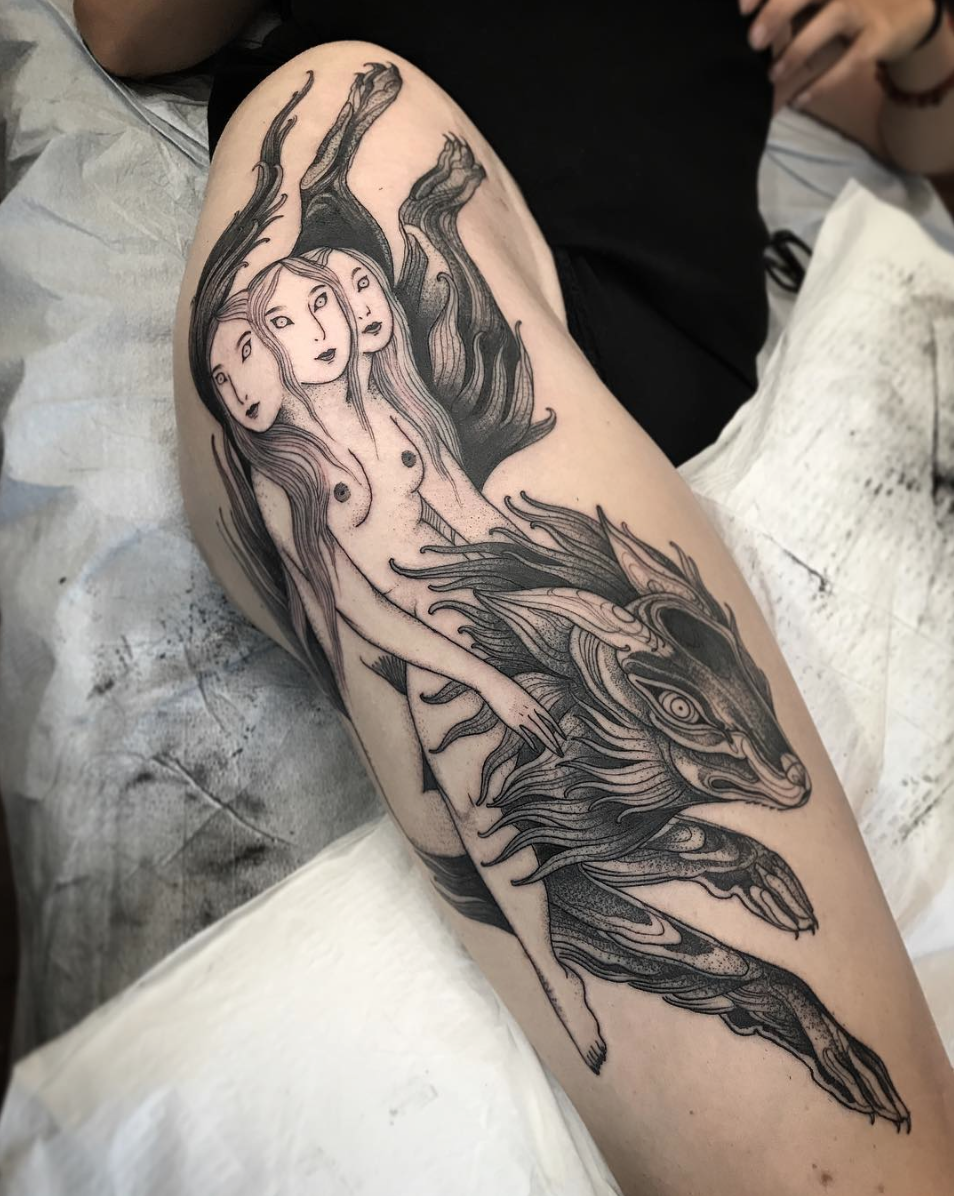
Nomi Chi “From my perspective, queer tattooers are folks who may address an intersection of a lot of different -isms in their respective spaces and practices. There are queer groups/individuals who focus on decolonization tactics, racism, gender-based violence, environmental concerns, etc. Often their tattoo work addresses these concerns, or their tattoo spaces are utilized for different aspects of their praxis and community building. Overall, I see a lot of folks these days trying to establish tattoo spaces and support tattooers/clients who fall outside of male-dominated/”masculine” white and heteronormative canons and contexts of tattooing. It is also important to mention that tattooing and body modification (as we understand it in the West) have coexisted with queer culture for a long time, and this current iteration probably owes a lot of its visibility to social media. As it makes images/texts accessible to just about anyone with internet access.
“I myself have a tenuous relationship with the idea of queer tattooing. On the one hand, I want to participate in a kind of social progression, and utilize my tattoo practice to help others work through the trauma inflicted by a toxic and often oppressive culture. On the other hand, my queerness is an extremely private element of my identity, and it’s not an element I feel comfortable putting to the forefront of my work. My work is in conversation with queer issues, but is it one lens through which to view my work/my whole personhood, it isn’t the lens through which to experience my work. It is, however, extremely comforting to have this international community around me to share experiences, knowledge, and communal gripes.”

Clare Frances “The tattooing that I love is, was, and always shall be for the freaks and the outsiders. You can call it queer tattooing, but to me this is real tattooing.”
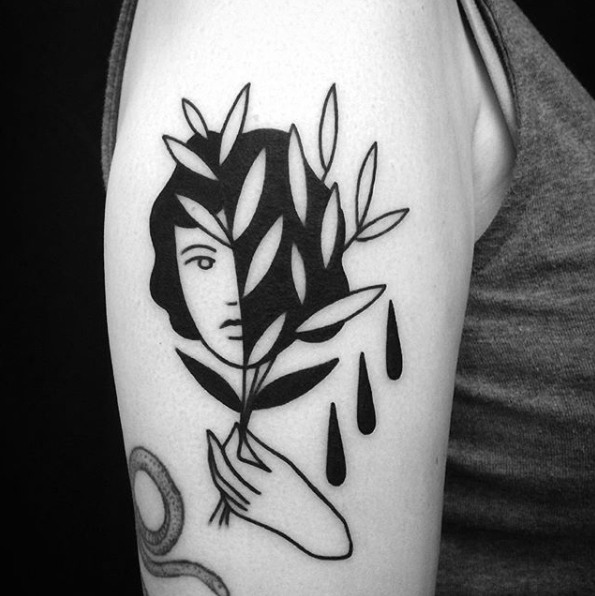
Muriel de Mai “I learned tattooing the traditional way and have had a lot of hard experiences as a female tattoo artist and as a customer. It’s important for me as a queer person to use my privileges to offer a safe and inclusive space for all queer people and allies. Ideas of solidarity, intersectionality, and social justice are absent in traditional tattoo shops and what interests me the most in the queer tattoo community. I mean, if we don’t take care of each other, if we don’t open our own spaces, if we don’t share our values, who will?”
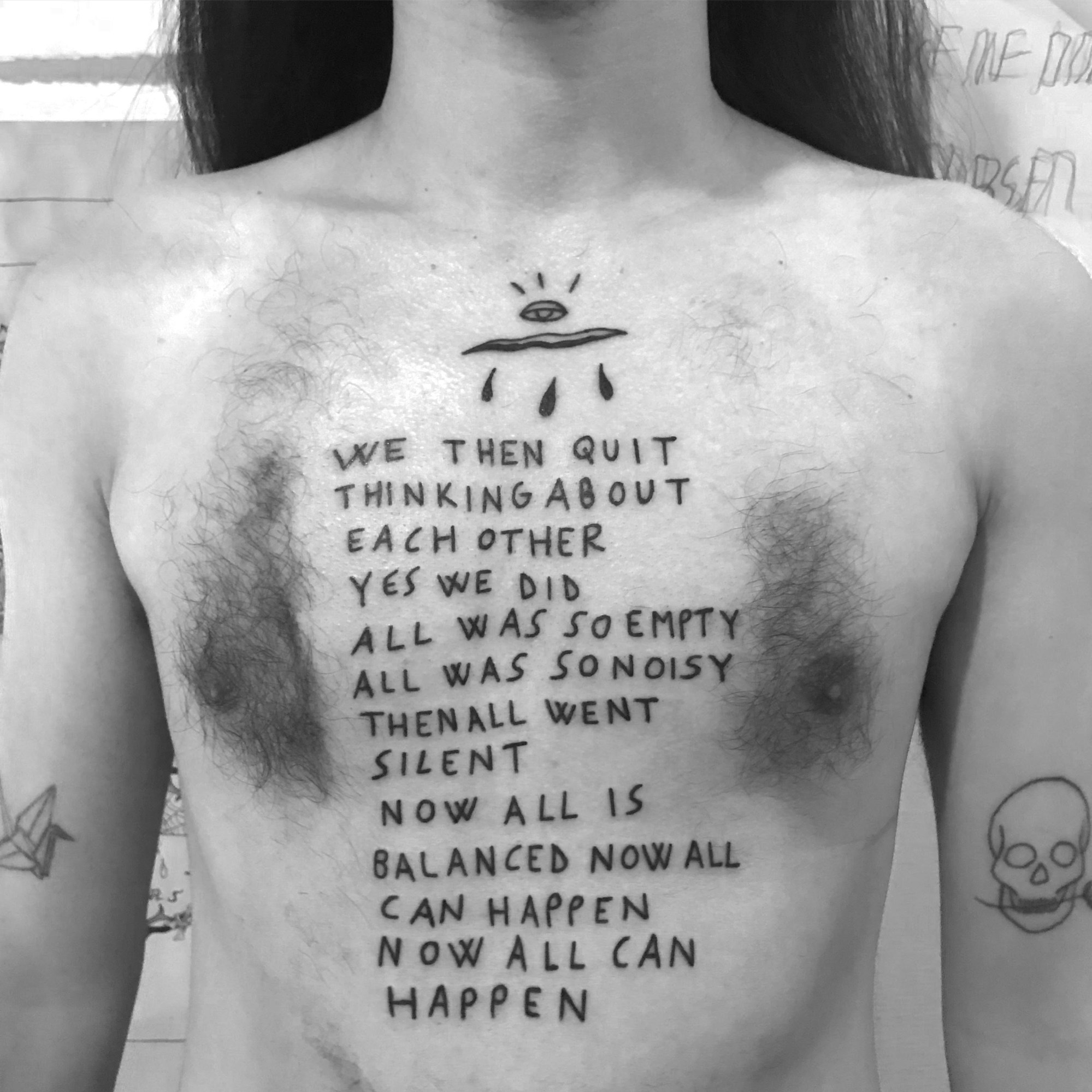
Francisca Silva “I think the queer tattoo movement is about expanding and giving room, offering safe spaces in which to get tattooed, and the opportunity for one to feel comfortable and not judged for their body or specifically open queer motif they might want to get.
It has surely inspired me to become a better tattooer. Because through it I’ve had the chance to meet great professionals that have helped me a lot. I want the queer tattoo movement to be conscious always of the necessity to [do] a good job [and] become stronger and stronger.”
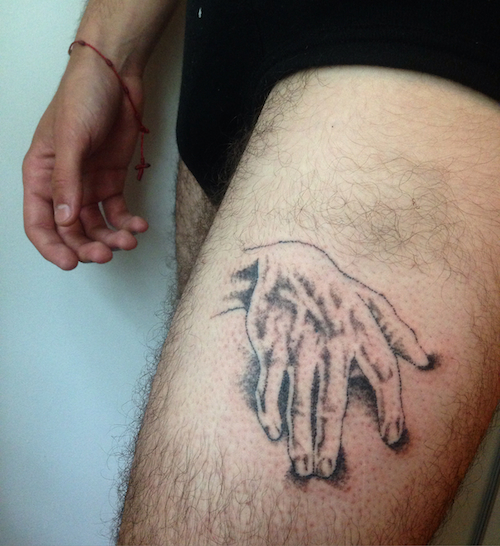
RIP Sally
“I cannot speak for queer culture or tattooers as a whole. As a white person who passes as male, it’s my responsibility to both allow marginalized communities more space and voice, and to represent my communities in a way that subverts the overwhelming representation of racist misogyny, transphobia, and oppression. I hope my work and my outlook can speak to the diversity of perspective and experience in white “male” queerness. I tattoo all people, many different styles with a variety of imagery and all by hand without using a tattoo machine. Within the mainstream tattoo industry, there is an alarming majority of straight white men practitioners using tattoo machines. To tattoo as a queer person without machines can hopefully contribute to the breadth of experiences one can have when exploring tattoo culture.
“Social media is instrumental in connecting queers internationally or giving people who may not feel safe in physical tattoo spaces access to artists and other queer community members. What could be progressive for queer communities within tattooing is to remember that we need to take our online communities and create physical spaces to engage and interface in real life as well.”
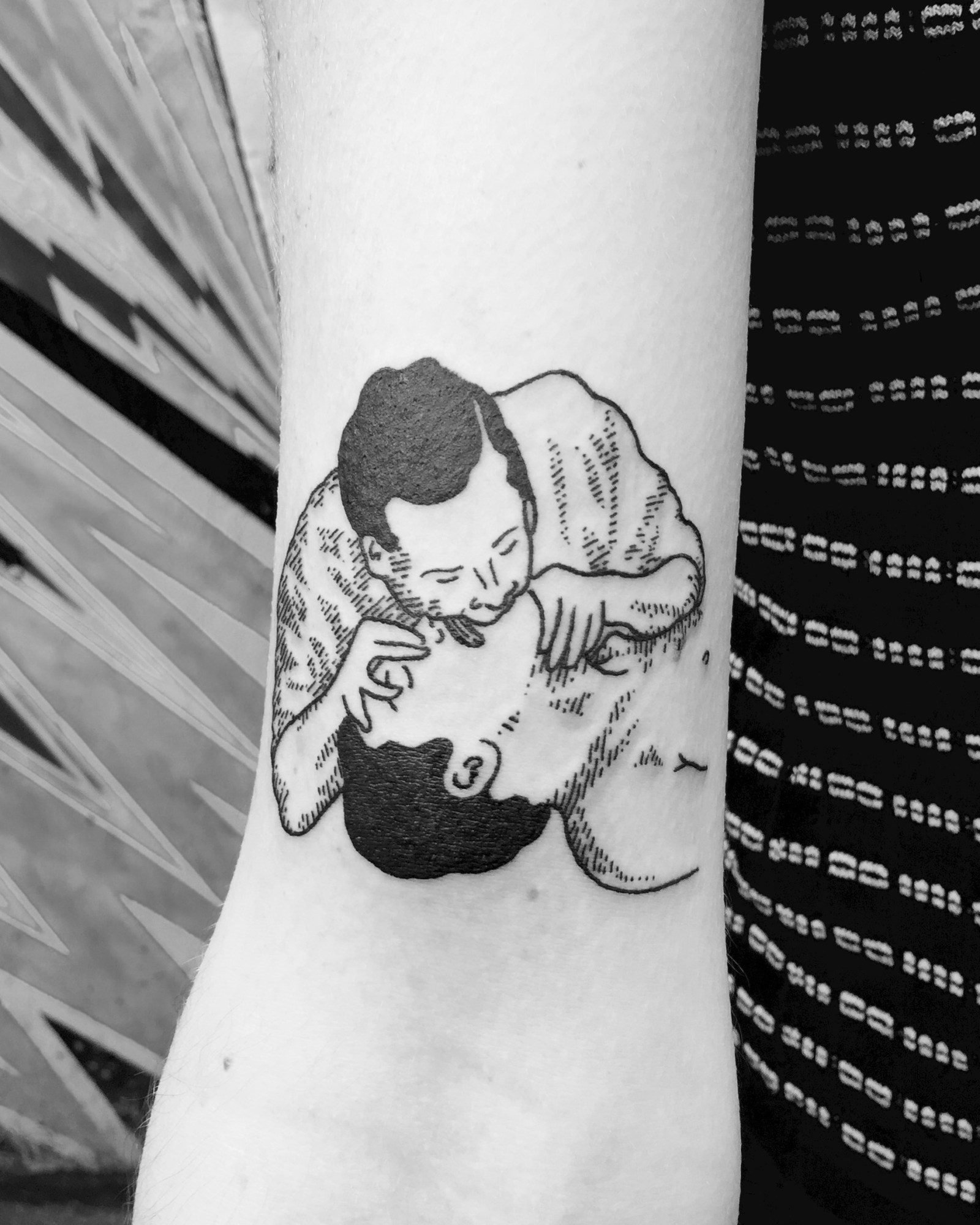
Mars Hobrecker “I think this movement largely boils down to treating your clients with respect; acknowledging that the skin you’re working with is a living, breathing human with feelings and past experiences, and allowing tattooing to be an intimate experience. Of course, there’s a definite stylistic component as well, with lots of folks breaking the mold and working in ways that counter what traditional tattoos are “supposed” to look like, but ultimately, I think it’s about bringing some humanity back into the art form.”

Charline Bataille “I think there is a real love connection between queer tattooers on the internet. I don’t feel any competition or jealousy. I think it’s powerful.”
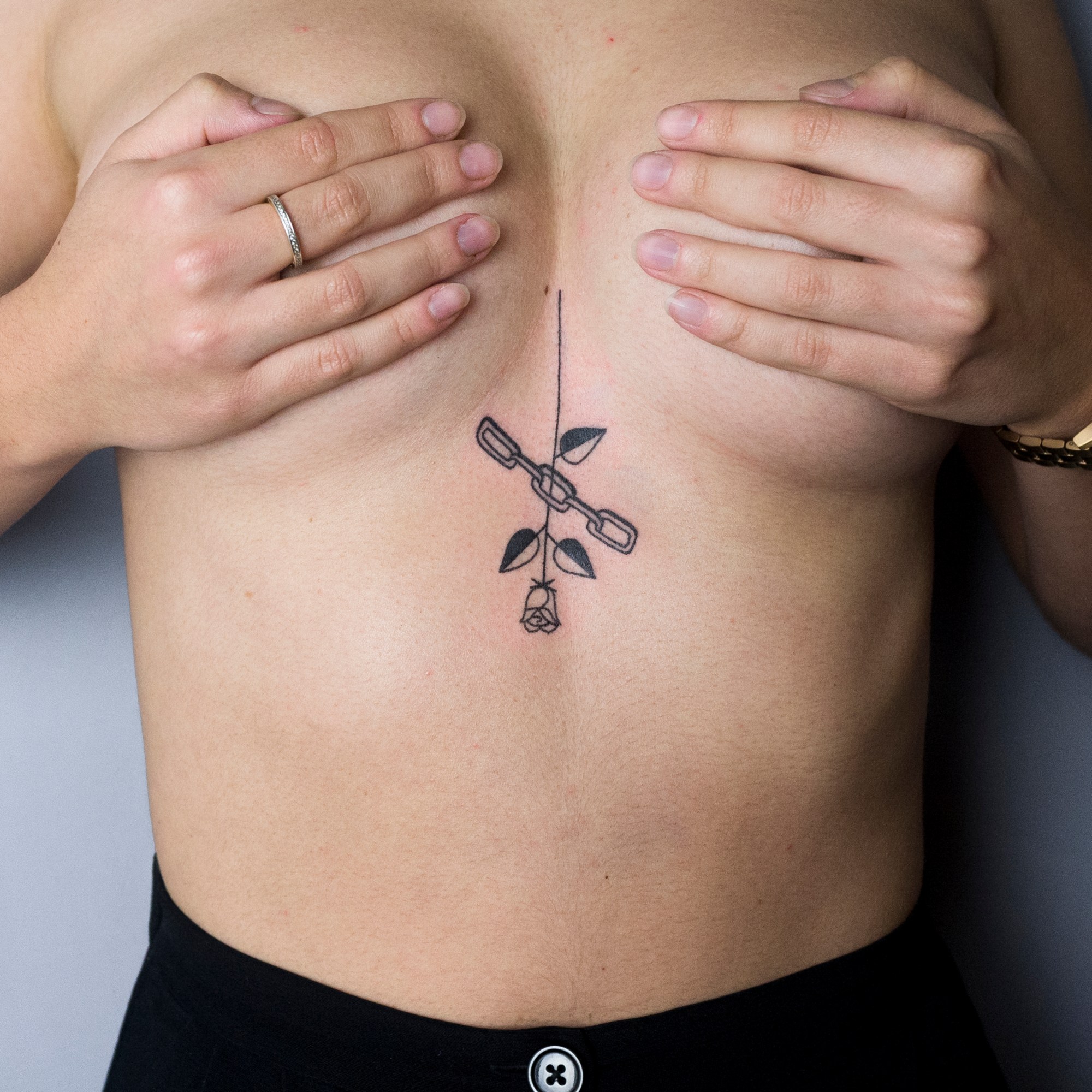
Sipos Rozita “It’s difficult for me to talk about the queer tattoo community. I feel like the contemporary tattoo community itself and this whole generation of independent tattoo artists are so open and supportive nowadays, creating safe spaces and networks all around the world. Maybe it makes more sense to talk about the whole community as it is. I feel the same way when people are talking about the hand-poke community.
“I think the beautiful thing about this community, of which I feel part of, is that no one cares if you are queer or not, if you are a hand-poke or a machine artist. Everyone just takes you for what you are and appreciates your work for what it is. I am feeling part of a queer community as well, of course, being surrounded by very inspiring and supporting queer artists. But I get the same support from non-queer artists as well, and I don’t make any difference between the two.
“I wouldn’t say that I am an activist of a movement; I am just an artist who happens to be queer. There are many inspiring artists out there who are fighting a lot for visibility and equality for queer people in the tattoo scene, I truly admire them, and I wouldn’t take the credit for what they do, because I never had to fight. I think I am in a very privileged situation where I don’t have to even think about being queer as a problem. I don’t have to fight to be accepted and appreciated or to be able to work and be successful just because I’m queer. However I know that there are many places in the world where it’s not like this and I think the best we can do is give our love and support to the ones who need it. I think the way the whole contemporary tattoo community accepts and includes the queer community is a really good role model for society.”
